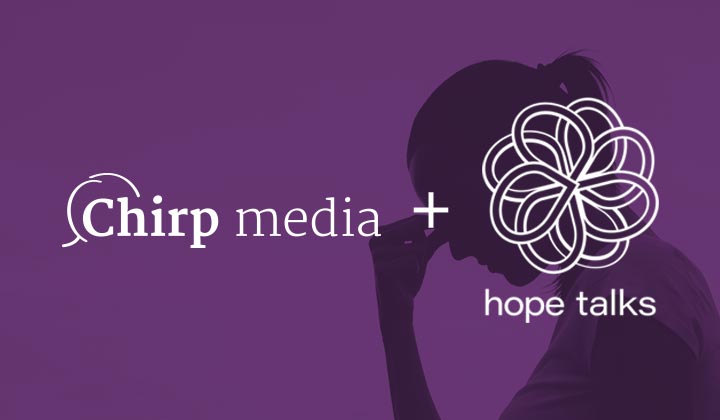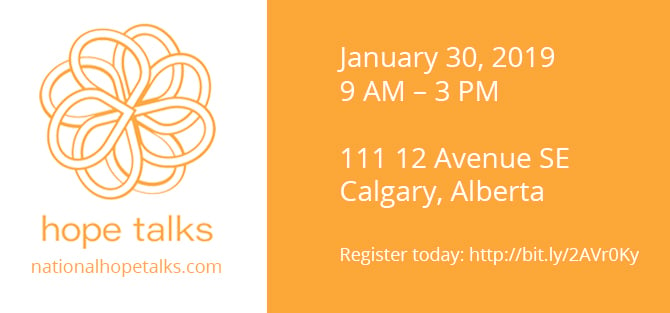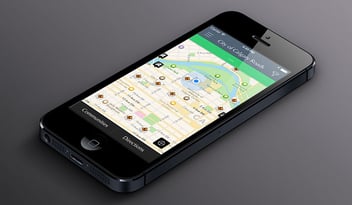A commitment to community and mental health
Every year I look at what Chirp Media can do for our community. We've participated in practicums and mentoring programs for local university and college students. We've hosted empowerment workshops, where we educate and empower our clients to learn the ins and outs of marketing for themselves, so they don't fall into a position where they may be taken advantage by nefarious service providers.
Even with all of that, I still feel that we haven't given back enough to our community. So I started to look at causes that not only Chirp could stand behind, but myself as well.
Mental health is very close to my heart, I personally suffer from various forms of depression. There is a stigma attached to mental health, especially in men. I have no idea why... Is it because we're supposed to be these solid rocks, these emotionless beings, or is it just because society doesn't think we should be depressed?
In my journey of self realization, I found that depression doesn't just mean I'm sad all the time. It's a state of being, I could be angry, I could be sad, it varies and it affects us all differently.
Last summer I had the fortunate experience to meet someone extraordinary, by the name of Connie Jakab. In the short time I've known her, I am amazed by her stand for not only community, but the world and what she is out to create.
We've already been hard at work this year, working with Connie and National Hope Talks and we're excited to announce what she is out to create with National Hope Talks, with our first ever guest post for Chirp Media, so, without further ado here's Connie!
Connie is the Owner of Movement With A Message, Village, and the Director of National Hope Talks. She brings 20+ years of working in resiliency to her talks and has experienced mental health issues in her own family and has found tools to overcome and thrive. Connie speaks to how community can heal mental illness and HOW we bring the hurting closer.
Mental Health affects everyone.
I have worked in resilience for 20 years. I started working with youth at risk in East Vancouver where there were gangs, drugs and violence. But the world has changed. I now see the same issues of anxiety in both rich, suburban areas as I do in “ghettos”.
The ghetto has flatlined.
It’s no longer “those people”, it’s US.
This didn’t become more real to me than when my own son got diagnosed with anxiety, depression, oppositional defiance disorder and ADHD. He became suicidal at 8 years old.
8 years old.
How does this happen? How does this happen to a family that isn’t “broken”? To a family that has values and decent paying jobs? Not to mention a mother who works in resilience?! We were no longer looking at “those families” we WERE “those families” in crisis, having to hide the knives, experiencing the daily stress of a child gone off the rails.
“You never send the hurting away, you bring them closer.”
Depression for my son didn’t show up as sadness, it showed up as anger. We finally had to take our son to the Children’s Hospital Mental Health Unit where he stayed for three weeks. It was there where one of the psychologists asked me, “What do you do when your son is throwing fits of rage?” I told her that I would send him to his room and tell him he could come out when he was ready to be a “good boy”. Her next statement changed everything for me and my family and my resilience work. She replied, “Oh no, you never send the hurting away, you bring them closer.”
Bring him closer? At first I thought that sounded ridiculous, but at this point in his mental health journey we were willing to try anything. For the next year, whenever my son would throw a fit I would stay in the same room and remove all the sharp objects. If I could, I would hold him. While I was with him I would say, “Son, nothing you do or say will ever break our connection. You belong in our family and I will stay here with you until you heal. I am committed to you and I love you.” I did that for a year.
A year.
A year of consistently showing up the same way. In that year I also worked on my own emotional regulation and worked to create a healthy home environment. Looking back, it was me who changed the most and it resulted in a healthy, thriving boy today. Connection does wonders! Today my son still has the same diagnosis, but you could never tell. At 12 years old he is strong and confident. It is seeing this remarkable change that has sparked my passion for us to talk SOLUTIONS to mental health. I have seen hope manifest in my home through intention. I realize that the issues of mental health don’t have to be as big as they are and that’s why I’m gathering business leaders, parents, mental health care workers, non profit leaders, teachers and students together on Bell Let’s Talk day to talk, but also talk about HOPE in the form of plans to see change. I am doing this through my initiative National Hope Talks.
If you'd like to reach out to Connie to show your support or learn more about National Hope Talks, visit www.nationalhopetalks.com, or grab your tickets today for Let's Talk Hope - Bell Let's Talk Day Mental Health Conference.
Article by Richard Walsh
As a certified inbound and content marketer, Richard believes in the need to create high-quality compelling content, that drives engagement and interaction. Richard has been developing brands and high-quality web experiences since 2001. Book a meeting with Richard to talk about your branding and marketing efforts.





